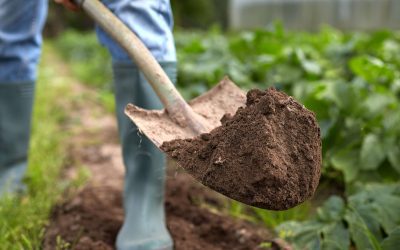Fly tipping is becoming a blight on the UK’s landscape. At a time when correctly disposing of waste (especially industrial waste) is becoming more expensive, many unscrupulous traders (and individuals) are choosing to fly tip, rather than take their rubbish to a designated disposal site. That means the clean-up bill lands on someone else’s plate, and there’s a very real risk that the landscape can be contaminated with highly toxic rubbish.
However, it’s very difficult to stop the fly tippers, especially in rural areas. There’s a lack of surveillance cameras in the countryside, and even in cities where cameras are on every street corner, there are still spots where fly tippers can dump material without being seen. It’s this inability to identify the tippers that makes it so difficult to seek any kind of redress for victims of this crime.
Be in no doubt, too, that this is a criminal act. So if it is possible to identify tippers then the information should immediately be handed over to the authorities. However, in the meantime, there are things you can do to make life difficult for the tippers.
Make it hard for the fly tippers
The easiest way to stop fly tippers is to make it as difficult as possible for them to get on to your land. Gates that can be locked are the best bet, but if you can’t gate an access point then things like hay rolls (those things quite literally weigh a ton!) or tree stumps that are difficult to move can act as a deterrent. You’ll need to make sure that public rights of way are not blocked off, but the aim is to make your land as unattractive as possible for fly tippers.
If practicable, install CCTV in vulnerable areas (although bear in mind the legislation surrounding CCTV or surveillance equipment facing onto public access points). Sometimes, even an empty camera and a big sign can do the trick and deter fly tippers.
If the worst happens…
Firstly, be careful about approaching or handling the waste, especially if it’s builder’s rubble. There could be highly toxic waste such as asbestos mixed in, or pollutants such as used oil or chemicals.
Take photos and document the waste as much as possible. Look for clues such as receipts or envelopes with names and addresses on them, as this may give you a literal ‘paper trail’ that could help you identify who has dumped the rubbish on your land.
Notify the authorities (your local council) straight away, and don’t remove the waste until they’ve had a chance to examine it.
Once all the evidence has been gathered, make sure you arrange for a registered waste carrier to dispose of the rubbish. Don’t be tempted to simply dump it somewhere else yourself, as you could be held responsible and face an unlimited fine as a result. If there is hazardous material in the waste then it must be disposed of by a contractor with the appropriate hazardous waste disposal licence.
Unfortunately, you will have to bear the brunt of the clean-up cost yourself, but keep records because if the perpetrators are caught and successfully prosecuted then you should be able to recover the costs of all removal and disposal.
One final note – if you see someone fly tipping on your land, don’t try and intervene yourself. Call 999 and inform the police, rather than potentially putting yourself at risk.
Edward Worthy and his agricultural law team would be pleased to hear from you with any farming related queries on 01245 493939 or worthye@gepp.co.uk
This is not legal advice; it is intended to provide information of general interest about current legal issues.




